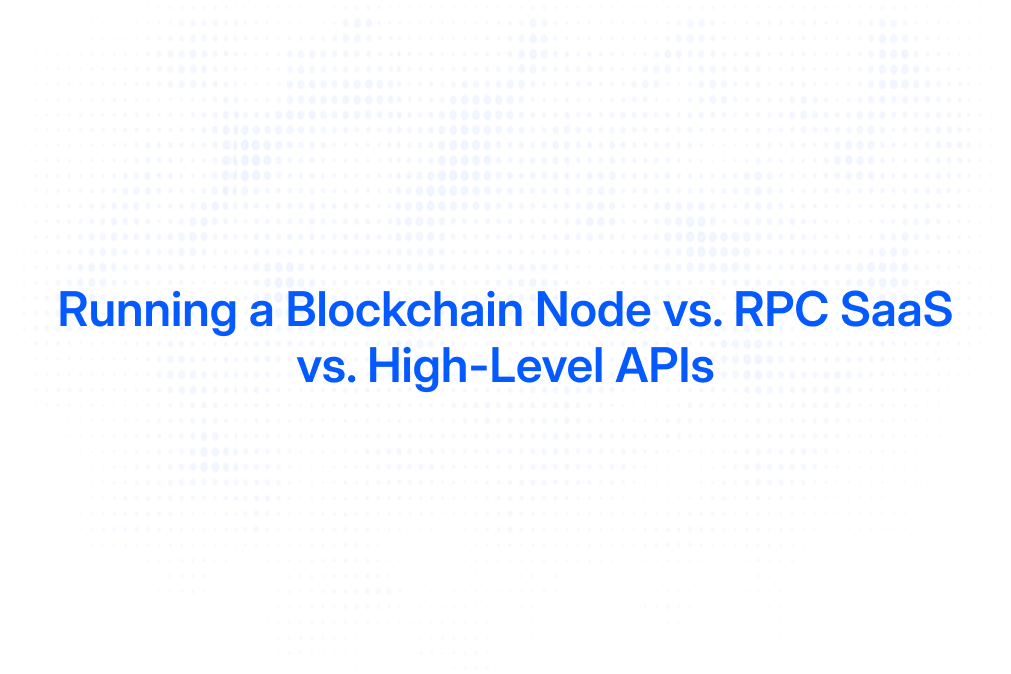Solana Now on Uniblock: What is Solana? What is Solana Used For?
Jason Li

What Does Solana Actually Do?
Solana is a blockchain platform designed to host decentralized applications (DApps) and crypto assets. Above all, Solana is known for its high throughput extremely low transaction costs which make it a very compelling choice for developers and users. Founded by Anatoly Yakovenko, Solana essentially aims to solve the scalability issues faced by older blockchains like Ethereum and Bitcoin. It leverages a unique consensus mechanism, Proof of History (PoH), combined with Proof of Stake (PoS), to process transactions quickly and efficiently, providing a foundation for a rich ecosystem of DApps, marketplaces, and digital assets, including non-fungible tokens (NFTs).
How Does Solana Work?
Solana works by using a hybrid consensus mechanism that incorporates both Proof of History (PoH) and Proof of Stake (PoS). PoH is essentially a unique algorithm that allows the network to create a historical record that proves that an event has occurred at a specific point in time. This significantly reduces the need for the intensive computation and communication between nodes typical in traditional blockchain networks. Validators on the Solana network are responsible for processing transactions and securing the network, contributing to its high-speed transaction processing capabilities. The Solana blockchain can handle tens of thousands of transactions per second (TPS), making it one of the fastest blockchains in the industry.
What Are the Main Use Cases of Solana?
Solana's platform is a powerhouse in the blockchain space, offering a multitude of use cases across various sectors, thanks to its innovative blockchain technology. Leveraging smart contracts, the Solana blockchain provides a robust environment for developing and deploying decentralized applications (DApps) across finance, gaming, art, and beyond. Here's a deeper dive into its main use cases:
Decentralized Finance (DeFi): With the SOL token at its core, Solana's ecosystem has become a haven for DeFi projects seeking high transaction speeds and low costs. Platforms built on Solana, such as Serum, offer decentralized exchange (DEX) functionalities with near-instant settlement times, contributing significantly to the liquidity and volume in the crypto market. Its capability to process transactions efficiently also makes it an attractive option for stablecoin projects, ensuring quick and economical transfers.
Non-Fungible Tokens (NFTs) and Digital Art: The Solana blockchain's high throughput and minimal transaction fees have spurred the growth of NFT marketplaces and projects. Artists and creators benefit from fast minting and low costs, making Solana a competitive platform for digital art and collectibles. The ecosystem supports a wide array of apps and marketplaces dedicated to NFTs, providing a vibrant space for creators to connect with their audience.
Smart Contract Platforms: As an open-source project, Solana invites developers to build complex decentralized applications utilizing its scalable blockchain and smart contracts. The platform supports a diverse range of applications, from gaming to decentralized social media, by offering the necessary speed, scalability, and security. Thanks to these features, alongside developments and upgrades spearheaded by the Solana Foundation and co-founder Anatoly Yakovenko, Solana is at the forefront of smart contract innovation.
Financial Services: Beyond DeFi, Solana is paving the way for more traditional financial applications to enter the blockchain space. Its partnership with payment processors like Visa signifies the potential for integrating blockchain into everyday financial transactions, offering alternatives to proof-of-work systems like Bitcoin and Ethereum with its efficient proof-of-history mechanism. This collaboration aims to enhance transaction speeds and reduce costs, making blockchain a viable option for mainstream financial services.
Cross-Chain Interoperability and Web3: Solana's architecture and emphasis on decentralization and validator nodes make it an ideal candidate for cross-chain interoperability projects and Web3 applications. By facilitating seamless asset transfers and interactions between different blockchains and the decentralized web, Solana enhances the user experience and broadens the possibilities within the crypto ecosystem.
The mainnet launch, substantial market capitalization, and listings on major exchanges like Coinbase very much highlight Solana's growing importance and potential as a leading blockchain platform. Its emphasis on high-speed transactions, scalability, and an expansive range of use cases underscores its ambition to redefine the blockchain landscape, offering a permissionless, decentralized, and high-performance infrastructure for the future of finance and beyond.
Solana & Uniblock
For developers looking to integrate or learn more about our Solana implementation, our documentation offers a thorough guide. It includes API references, setup instructions, and examples to help you get started. To access this information and explore the JSON-RPC overview along with other essential details, visit our documentation at https://docs.uniblock.dev/reference/json-rpc-overview.
.svg)


.png)



